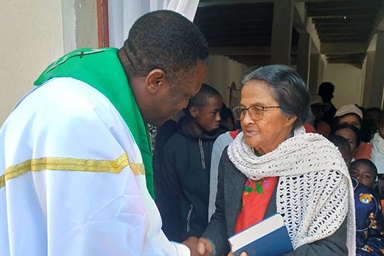A few petitions affecting United Methodist clergy either were approved by General Conference 2016 or are highly likely to be, having made it onto the consent calendar.
But a renewed effort that would have begun the process to remove the constitutional bar to end guaranteed appointment for ordained elders failed in committee, as did an “early ordination” petition.
Many petitions dealing with clergy came from the Ministry Study Commission, led by Greater Northwest Area Bishop Grant Hagiya.
“Overall, we did pretty well in terms of legislation,” Hagiya said on May 16.
Delegates passed a range of petitions on the first consent calendar Monday. Among them was one from the Ministry Study Commission titled “Deepening the Theology of Ordination.”
The purpose is to provide clarity around the meaning of ordination, as well around sacramental authority and the Holy Spirit’s role in that.
“We’re very committed to talking about, ‘What is the work of the Holy Spirit and how are we preparing people to go out and serve and be really effective?’ ” said the Rev. Ken Nelson, a South Carolina Conference delegate and member of the Ministry and Higher Education and Superintendency Committee at General Conference 2016.
Other petitions from the Ministry Study Commission have made it onto consent calendars to be voted on later in plenary.
They include one that would strengthen the requirement for lifelong learning and coaching for clergy; another that would provide for periodic clergy assessments; and a third that would say local pastors no longer must be at least age 40 to apply for provisional membership.
High hurdle
At General Conference 2012 in Tampa, Florida, delegates voted to end guaranteed appointment for ordained elders. But the Judicial Council ruled that the legislation violated the church constitution.
The 2013-16 Ministry Study Commission did not put forward legislation on guaranteed appointment, unlike its predecessor commission.
But the Association of Annual Conference Lay Leaders submitted a petition seeking to change the constitution to make clear elders are not guaranteed an appointment.
The measure would have required a two-thirds plenary vote – a high hurdle – but never got to plenary. The Ministry and Higher Education/Superintendency Committee last week failed to support the legislation.
“We recognize that we’ve got real issues with clergy who are ineffective,” Nelson said.
But he added that the committee concluded that parts of the Book of Discipline, the church lawbook, allow for dealing with ineffective clergy.
Before strengthening the bishops’ hand in doing so, Nelson said, the denomination needs to have methods in place to help clergy improve and to make sure that no group is targeted unfairly for removal.
“This legislation wasn’t strong enough in that way to help us move in that direction,” Nelson said.
Lonnie Brooks, legislative chair of the Association of Annual Conference Lay Leaders, said he was disappointed that the committee did not support ending guaranteed appointment.
“I’m not altogether surprised,” he said. “Half of the people who are voting delegates are clergy.”
Concerns about early ordination
The Ministry Study Commission favored allowing early ordination for clergy candidates who have met educational requirements.
Currently, they serve as provisional members of their annual conferences for at least two years before being ordained as elders or deacons. They are ordained during the annual conference session at which they are elected to full membership.
The commission wanted ordination to come when the candidate is elected to provisional membership.
Hagiya said in earlier interviews that some seminary students were reluctant to pursue ministry in The United Methodist Church because of how long it takes to be ordained.
Provisional members can administer the sacraments and officiate at weddings and funerals, but they want the status of ordination. Denying it adds to confusion about what ordination really means in The United Methodist Church, he added.
But the previous ministry study commission had proposed early ordination, only to see it defeated in committee at the 2012 General Conference.
The Ministry Higher and Education/Superintendency Committee in Portland also rejected the idea.
Hagiya had acknowledged that annual conference boards of ordained ministry have concerns, including about what happens when someone is ordained and then is not elected to full membership.
Nelson said this General Conference’s committee included a majority who “feel like candidates should have more opportunities for service before you ordain them.”
Hagiya noted that support for early ordination was stronger in committee this time than it was four years ago.
Leaders of the National Fellowship of Associate Members and Local Pastors said that until early ordination for elders passes, there is little chance of ordination for local pastors – something some church leaders have passed as the local pastor ranks have increased.
Hodges, a United Methodist News Service writer, lives in Dallas. Contact him at (615) 742-5470 or [email protected]
Like what you're reading? Support the ministry of UM News! Your support ensures the latest denominational news, dynamic stories and informative articles will continue to connect our global community. Make a tax-deductible donation at ResourceUMC.org/GiveUMCom.




